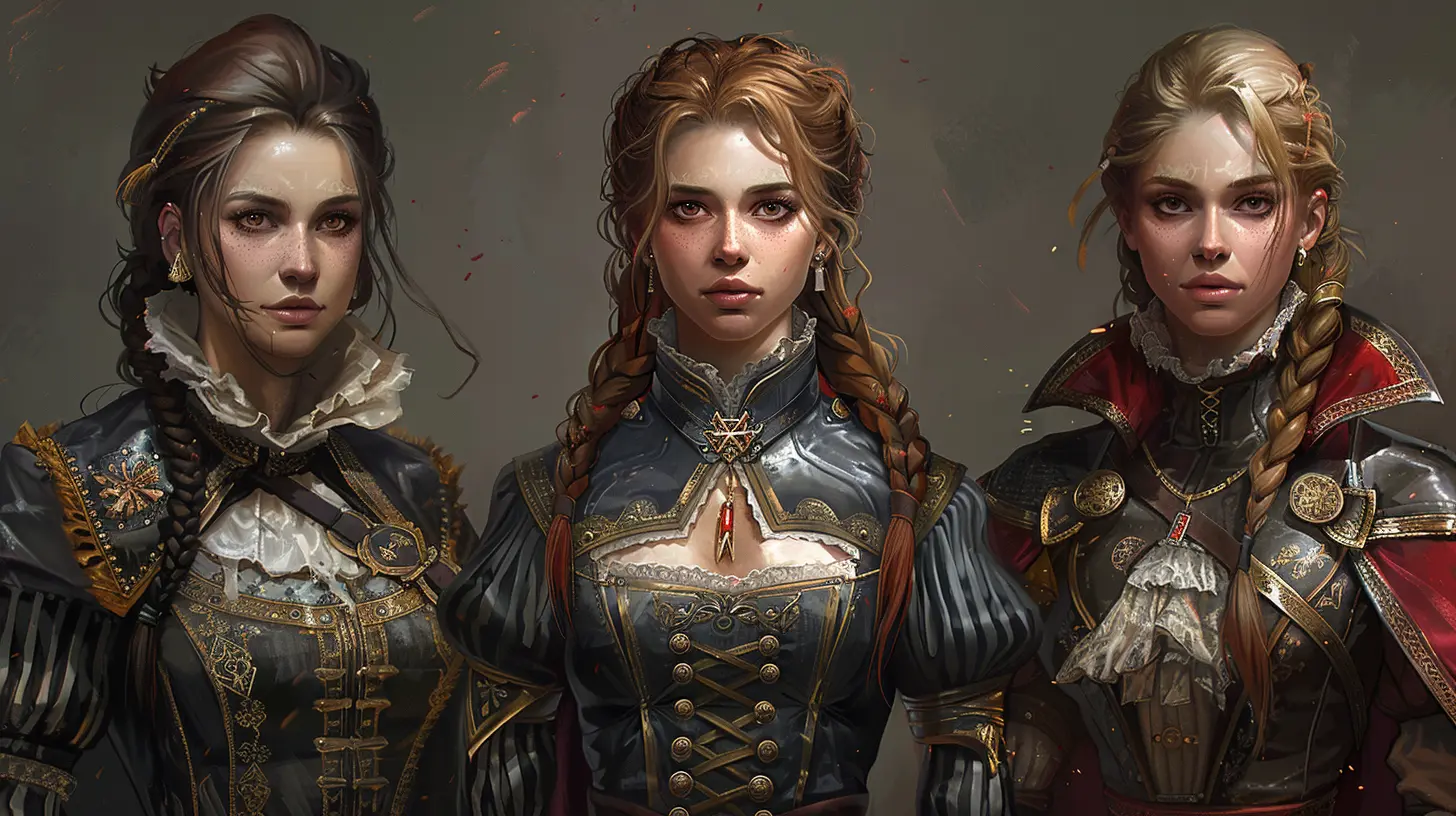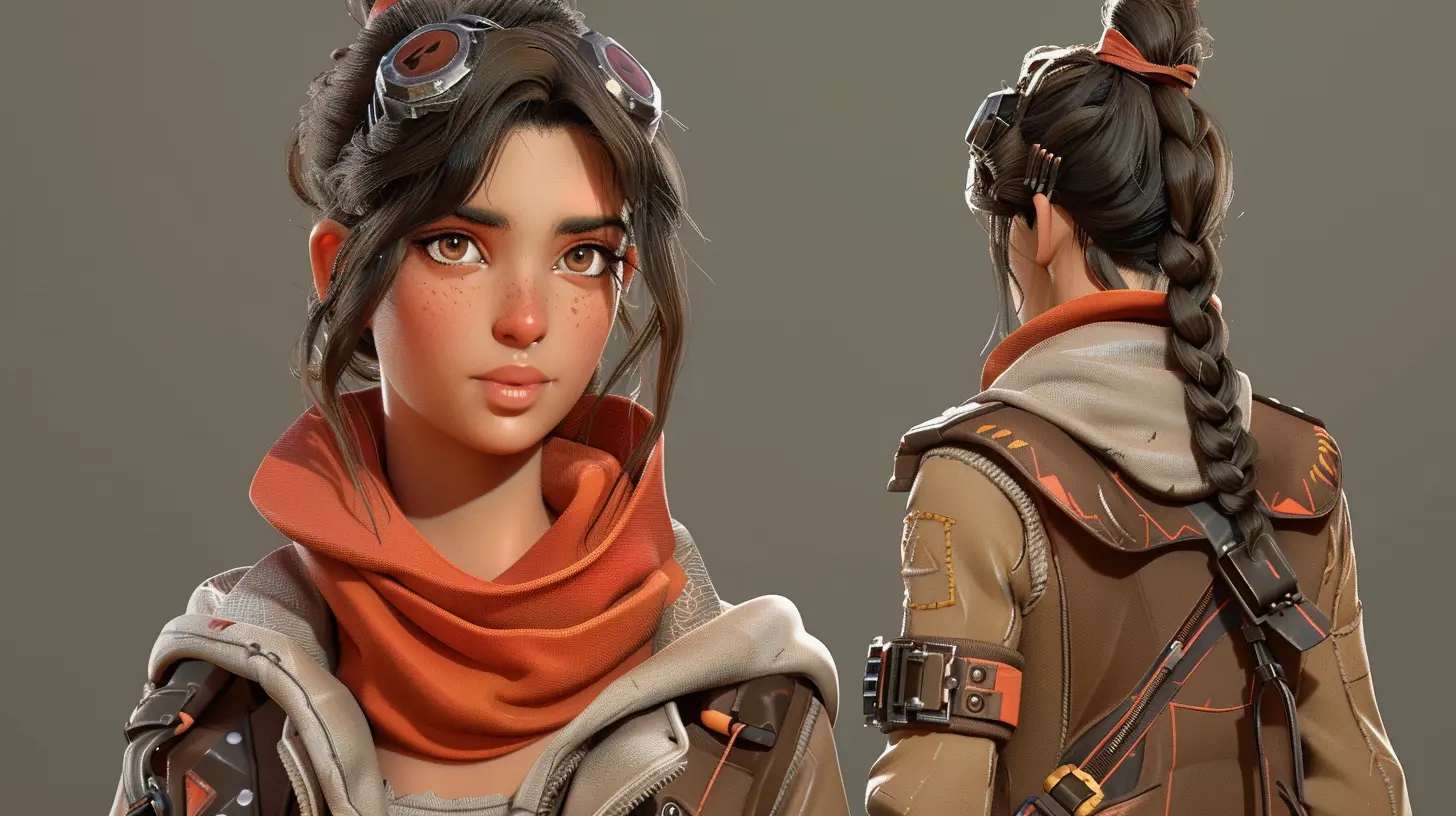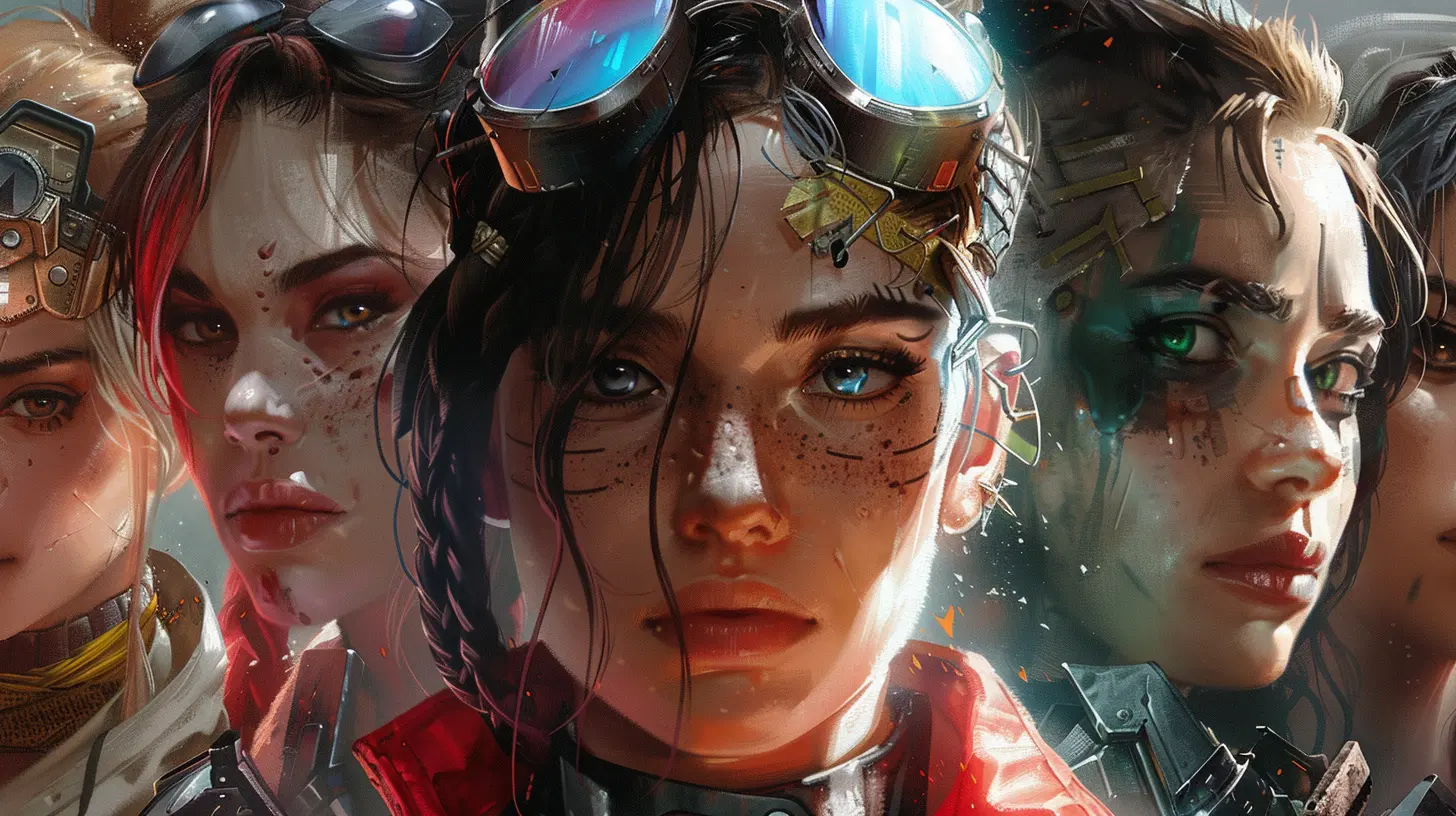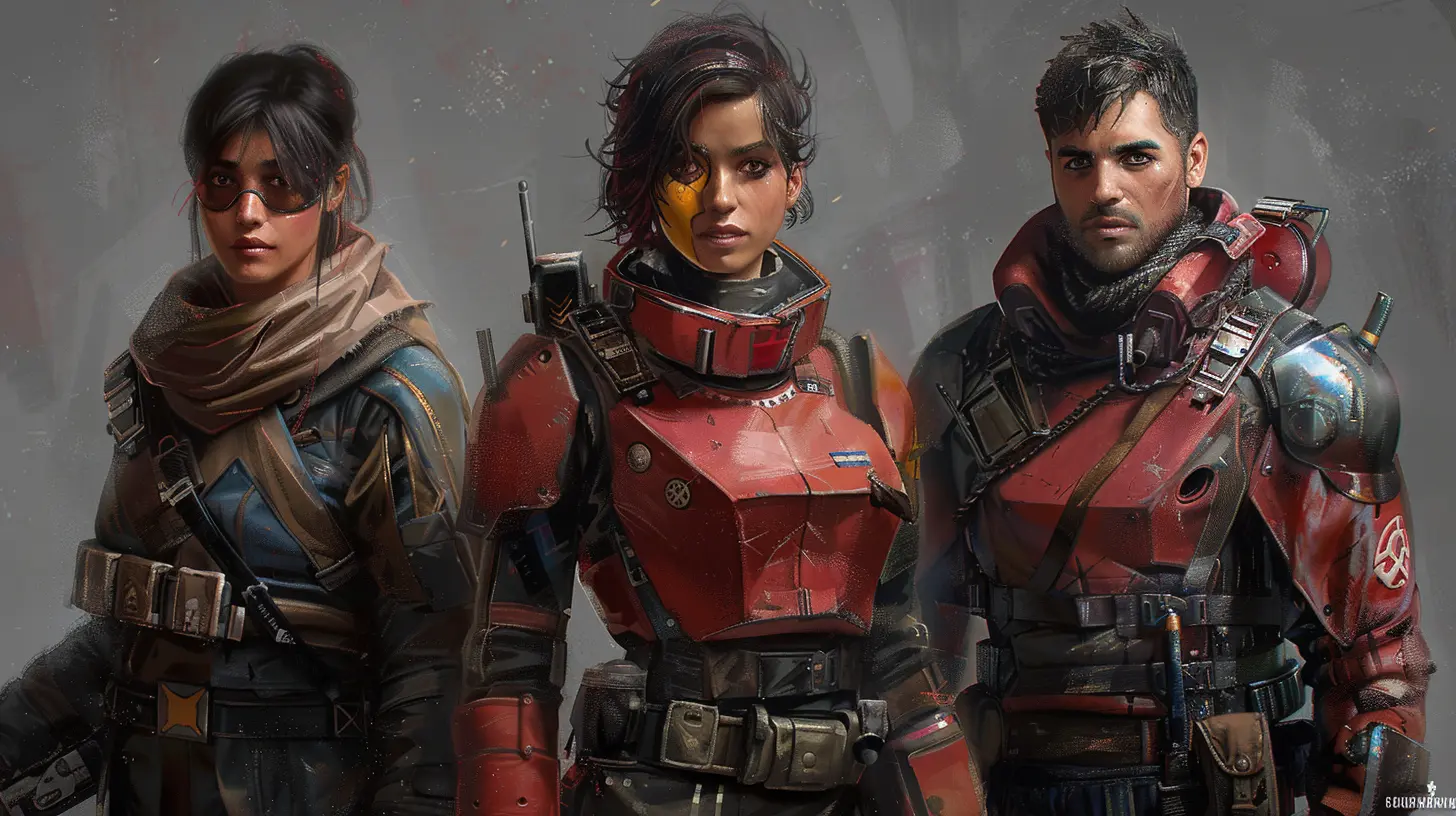How Player Choices Shape the Story Through Customizable Characters
10 December 2024
Have you ever played a game where it felt like you were the one truly writing the story? Like every decision, every action, and every dialog choice was yours to make, molding the narrative and defining the characters? This is the magic of customizable characters and player-driven choices—a dynamic approach to storytelling that puts the player in the driver’s seat. It’s what transforms a regular game into a deeply personal experience, one that sticks with you long after the credits roll.
In this article, we’re diving into how player choices and character customizations work together to shape powerful, interactive stories. Whether you're exploring uncharted worlds or navigating human drama, these elements make games more engaging, more personal, and way more fun. So, grab your controller (or keyboard and mouse), and let’s get into it!
What Makes Player Choices So Powerful?
Imagine starting a game with this prompt: “Who are you?” Right off the bat, you’re being asked to play a role. Unlike watching a movie or reading a book where the characters are already set, many games hand you the reins. You get to decide who you are—and what choices you’ll make along the way. And those choices? They often come with consequences.Player decisions are game-changing (pun intended). They impact more than just your character; they influence the world, the people around you, and even the ultimate outcome of the story. It’s like being the author of your very own adventure. This sense of agency is what keeps players hooked.
Think about it: Have you ever agonized over a "morality choice" in a game? Save the village or save your best friend? Side with a faction that aligns with your principles, or betray them for personal gain? The weight of these decisions can leave players questioning themselves, second-guessing their actions, and sometimes even replaying the game just to see what could’ve been.
Customizable Characters: Why They Matter So Much
Let’s face it—customizing your character is one of the most exciting parts of starting a new game. Whether you’re tweaking your avatar’s hairstyle, picking their backstory, or deciding their alignment (chaotic neutral always sounds fun, doesn’t it?), the ability to create someone unique makes the experience feel yours.But it’s deeper than just aesthetics. Character customization allows you to project a part of yourself into the game. Maybe you’re molding the character to look like you or, alternatively, someone you wish you could be. Or perhaps you’re experimenting with personalities you’d never adopt in real life. The beauty of customizable characters is that they create a bridge between the player and the game world—a connection that makes everything feel more immersive.
Take RPGs (Role-Playing Games) like The Elder Scrolls V: Skyrim, for example. Right after creating your character, you’re thrust into this massive, open world where you decide your path. Will you be a fearless warrior? A sneaky thief? A powerful mage? The choices are endless, and every decision adds layers to the story.
The Butterfly Effect: Small Choices, Big Impacts
Let’s talk about the butterfly effect in gaming. For anyone unfamiliar, the butterfly effect refers to the concept that even tiny decisions can lead to monumental outcomes. In gaming, this mechanic can turn an otherwise straightforward plot into an intricate web of possibilities.For instance, in Mass Effect, even seemingly insignificant conversations can shift entire relationships or events later in the game. Do you comfort a grieving crew member, or do you stay distant? Offer a helping hand to a stranger or act selfishly? These small choices ripple out, affecting not just the immediate moment but potentially the game’s ending.
And here’s the kicker—when games leverage this mechanic effectively, it creates a sense of ownership over the story. Players feel responsible for what unfolds, whether it’s triumph or tragedy. It’s a bit like watching a domino chain reaction where you decided the starting point.
Moral Dilemmas: Forcing You to Think Deep
Here’s something developers have mastered: moral dilemmas. They throw you into situations where there’s no clear “right” or “wrong” answer. Instead, you’re left to wrestle with your own values and principles. Games like The Witcher 3: Wild Hunt excel at this.Picture this: You’re Geralt, facing a choice between saving a cursed spirit (risking the lives of nearby villagers) or killing it outright (sacrificing the spirit’s chance at redemption). What do you do? These moments force players into introspection. They’re not just choices for the character; they’re reflections of the player themselves.
Choice-Driven Stories Encourage Replayability
You know that feeling when you finish a game and think, “What if I’d done things differently?” That’s the hallmark of a well-crafted choice-driven game. Developers know this, which is why many games encourage players to dive back in for a second (or third… or tenth) playthrough.Take Detroit: Become Human, for example. A single playthrough might only reveal 30-40% of the game’s entire story possibilities. Every choice opens (or shuts down) new narrative paths, meaning each playthrough can feel like a completely different experience. It’s almost like playing an anthology of stories, all tied to the same world.
How Games Balance Freedom and Storytelling
Now, you might be thinking, “With so many choices, doesn’t the story get messy?” Not quite. Developers have to strike a delicate balance between giving players freedom and preserving a cohesive narrative. Too much freedom, and the story risks losing focus. Too little, and the game feels rigid.Take Red Dead Redemption 2 as an example. The game gives players a massive open world to explore and countless decisions to make, but it also nudges you toward a central storyline. Your choices influence how others perceive Arthur Morgan and the kind of person he becomes, but there’s still a clear, overarching narrative that ties everything together. It’s a fine-tuned dance between structure and freedom, and when it’s done right, it’s chef’s kiss perfect.
Games That Shine with Player Choices and Customization
If you’re looking for games that nail this concept, here are some stellar examples:- Dragon Age: Inquisition – Your choices as the Inquisitor shape alliances, determine lives, and even reshape the political landscape of Thedas.
- Telltale’s The Walking Dead – Every decision feels like life or death (literally). Characters remember your actions, and those choices build emotional stakes.
- Cyberpunk 2077 – Your character’s background, relationships, and key decisions define your version of Night City.
- Undertale – The “pacifist” and “genocide” routes are brilliant examples of how player intentions shape the story, the characters, and even the game’s tone.
Each of these games puts you in control of the story, proving that the interplay between player choices and customization is more than just a gimmick—it’s storytelling at its finest.
The Emotional Connection: Why This Matters
In the end, what makes choice-driven games and customizable characters so special? It’s the emotional connection they foster. When you’re co-writing the story, you’re not just playing the game—you’re living it. The characters feel like extensions of yourself. The dilemmas hit closer to home. The endings resonate because they reflect choices you made.It’s this blend of agency and immersion that makes these types of games unforgettable. They don’t just entertain; they engage, challenge, and inspire.
Final Thoughts
Customizable characters and player-driven choices redefine what it means to experience a story. They blur the line between the player and the protagonist, making every victory sweeter, every loss more heartbreaking, and every decision weightier. Whether you’re crafting a hero who mirrors your real-life self, or creating someone who exists purely in the realm of fantasy, these games let you step into worlds where your choices matter.So, the next time you’re tailoring a character’s traits or agonizing over a story-altering decision, take a moment to appreciate the artistry behind it all. Because in the world of gaming, you’re not just a player—you’re a storyteller.
all images in this post were generated using AI tools
Category:
Character CustomizationAuthor:

Jack McKinstry
Discussion
rate this article
14 comments
Ulysses Barker
Player choices elevate storytelling in games, transforming characters into reflections of our values and decisions. This customization fosters deeper connections, allowing us to explore diverse narratives and redefine our role in the unfolding tale.
February 3, 2025 at 4:13 PM

Jack McKinstry
Absolutely! Player choices not only enhance storytelling but also create personalized experiences, making characters and narratives resonate more deeply with our individual values and decisions.
Sable McInnes
Player choices are like toppings on a pizza: everyone loves to customize their slice! 🎮 From heroic knights to quirky aliens, the beauty of customizable characters lets us craft our own unforgettable adventures. So go ahead, mix it up and let your imagination run wild!" 🍕✨
January 31, 2025 at 6:05 AM

Jack McKinstry
Absolutely! Player choices enrich storytelling, allowing us to create unique experiences and adventures, just like personalizing a pizza with our favorite toppings. 🍕✨
Cerys Good
This article brilliantly highlights the impact of player choices on narrative in games featuring customizable characters. It underscores how personal decisions not only enhance immersion but also foster a unique storytelling experience. By tailoring characters, players forge deeper connections, ultimately making each gameplay memorable and distinct. Great insights!
January 29, 2025 at 5:48 AM

Jack McKinstry
Thank you for your thoughtful feedback! I'm glad you enjoyed the exploration of how player choices enhance storytelling and immersion in games.
Raegan McCullough
Embrace your creativity! Every choice adds a splash of magic to your gaming adventure!
January 24, 2025 at 3:45 PM

Jack McKinstry
Absolutely! Every choice truly brings the story to life, allowing players to create their unique adventure. Your creativity is the key!
Patricia Kane
In pixels and prose, our choices weave, Crafting destinies in worlds we believe. Custom characters, our voices resound, In every decision, new tales abound. A dance of fate, where players are free, Shaping the story, our legacy.
January 20, 2025 at 3:52 PM

Jack McKinstry
Thank you for capturing the essence of player agency! Your lines beautifully reflect how customizable characters enhance storytelling and empower players to shape their own narratives.
Mason Baker
This article beautifully captures the essence of player agency in gaming. The ability to shape stories through customizable characters adds a profound layer of personal connection to the narrative. It’s fascinating how our choices can lead to unique experiences, making every playthrough feel special and meaningful.
January 16, 2025 at 4:34 AM

Jack McKinstry
Thank you! I'm glad you found the article insightful. Player agency truly enhances the storytelling experience and makes each journey unique.
Nora Sharpe
This article masterfully highlights the profound impact player choices have on storytelling in games. Customizable characters not only enhance immersion but also deepen emotional connections to the narrative. It's fascinating to see how personal decisions can lead to unique experiences, making each player's journey truly their own. Well done!
January 12, 2025 at 5:56 PM

Jack McKinstry
Thank you for your insightful comment! I’m glad you found the exploration of player choices and their emotional depth compelling.
Hattie Rivera
Because nothing says deep storytelling like a pink-haired warrior with a pet unicorn, right?
January 10, 2025 at 3:44 AM

Jack McKinstry
Absolutely! Customizable characters, even whimsical ones, allow players to express themselves and engage deeply with the narrative.
Mateo Reynolds
Great insights! It’s fascinating how customizable characters can enhance player engagement and storytelling, making each gaming experience unique. Looking forward to more discussions on this topic!
January 7, 2025 at 5:41 AM

Jack McKinstry
Thank you! I'm glad you found it insightful. Customizable characters truly do create unique narratives, and I look forward to more discussions on this exciting topic!
Kenneth Snow
Absolutely love how choices deepen immersion—truly makes each player's journey unique and meaningful!
December 31, 2024 at 4:33 PM

Jack McKinstry
Thank you! I'm glad you appreciate the impact of choices on immersion and individuality in gameplay. It truly enhances the storytelling experience!
Jet McClellan
Player choices significantly impact narrative depth and character development in gaming experiences.
December 26, 2024 at 4:42 AM

Jack McKinstry
Absolutely! Player choices are crucial as they not only influence the storyline but also enhance character development, making the gaming experience more immersive and personal.
Landon Franklin
Choose wisely, or your llama will rebel!
December 16, 2024 at 4:04 PM

Jack McKinstry
Absolutely! Every choice adds depth to the story, even llamas can have their say!
Caden Middleton
Love how customizable characters let us shape our own stories! 🎮 It’s like being the author of our adventure—let those choices shine and have fun!
December 12, 2024 at 5:07 AM

Jack McKinstry
Absolutely! Customizable characters empower players to craft unique narratives, making every choice impactful and personal. It's a wonderful way to enhance the gaming experience!
Melanie Sharp
The article insightfuly explores how customizable characters enhance narrative depth, but it overlooks the potential pitfalls of player choice leading to narrative fragmentation.
December 11, 2024 at 3:58 AM

Jack McKinstry
Thank you for your insightful feedback! I appreciate your point about the potential pitfalls of player choice, and I’ll consider discussing narrative fragmentation in future work.
MORE POSTS

How to Get the Most Out of Your Game Subscription

How to Read Your Opponent and Predict Their Moves

Console Game Localization: How Games Change for Different Regions

Unyielding Resolve: The Role of Determination in RPG Character Development

The Magic System: How RPGs Innovate with Spells and Abilities

Biggest Bug Fixes and Quality-of-Life Changes in Newest Patch

The Art of Soundtracks: Why Console Games Have the Best Music

How to Stay Calm Under Pressure in Time Management Games

A Deep Dive into the Psychology Behind Time Management Games